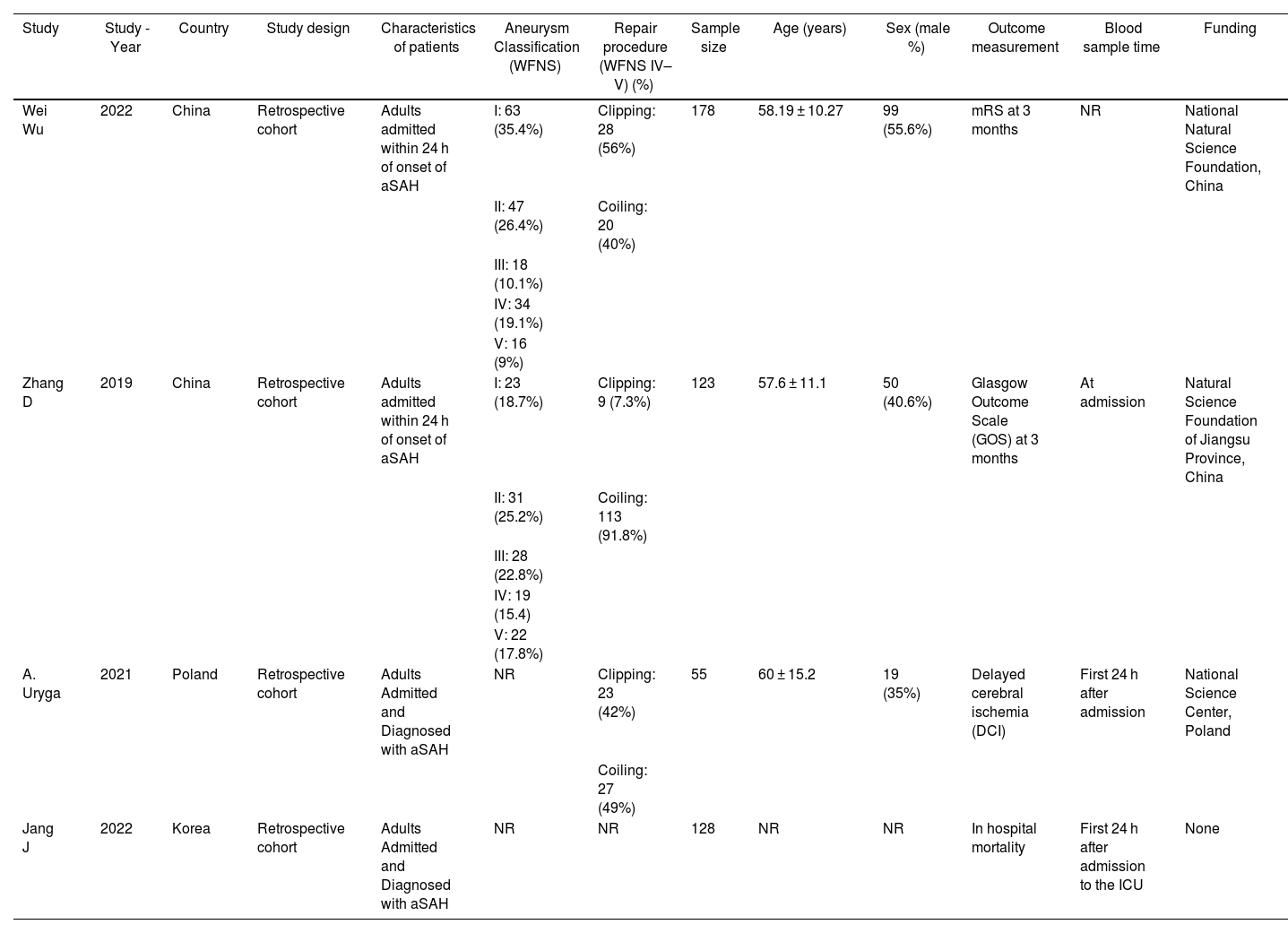The C-Reactive Protein/Albumin Ratio (CAR) is being studied as a potential predictor of severe outcomes in various diseases. Our study aimed to review current evidence on the prognostic value of CAR in patients with aneurysmal subarachnoid hemorrhage (aSAH). We conducted a systematic search in PubMed, Embase, Scopus, Web of Science, and Google Scholar up to April 2023 and assessed the risk of bias using the NewCastle-Ottawa tool. A narrative synthesis was performed, and the GRADE system was used to evaluate the certainty of the evidence. Out of 534 articles, 4 were selected. We found that a higher CAR level is moderately associated with a lower score on the Glasgow Outcome Scale at 3 months and a higher incidence of in-hospital mortality. However, no significant association was found with the modified Rankin scale or delayed cerebral ischemia. Although the evidence is limited, CAR could be a useful tool for predicting poor prognosis in aSAH patients, but more prospective studies are needed to determine optimal cut-off points and include CAR in long-term prognostic models.
La relación proteína C-reactiva/albumina (CAR) está siendo estudiada como un posible predictor de resultados graves en diversas enfermedades. Nuestro estudio tuvo como objetivo revisar la evidencia actual sobre el valor pronóstico de CAR en pacientes con hemorragia subaracnoidea aneurismática (HSAa). Realizamos una búsqueda sistemática en PubMed, Embase, Scopus, Web of Science y Google Scholar hasta abril de 2023 y evaluamos el riesgo de sesgo utilizando la herramienta de NewCastle-Ottawa. Se realizó una síntesis narrativa y se utilizó el sistema GRADE para evaluar la certeza de la evidencia. De 534 artículos, se seleccionaron cuatro. Encontramos que un nivel más alto de CAR está moderadamente asociado con una puntuación más baja en la Glasgow Outcome Scale a los tres meses y una mayor incidencia de mortalidad intrahospitalaria. Sin embargo, no se encontró una asociación significativa con la escala de Rankin modificada o la isquemia cerebral tardía. Aunque la evidencia es limitada, CAR podría ser una herramienta útil para predecir un mal pronóstico en pacientes con aSAH, pero se necesitan más estudios prospectivos para determinar los puntos de corte óptimos e incluir CAR en modelos pronósticos a largo plazo.
Article

If it is the first time you have accessed you can obtain your credentials by contacting Elsevier Spain in suscripciones@elsevier.com or by calling our Customer Service at902 88 87 40 if you are calling from Spain or at +34 932 418 800 (from 9 to 18h., GMT + 1) if you are calling outside of Spain.
If you already have your login data, please click here .
If you have forgotten your password you can you can recover it by clicking here and selecting the option ¿I have forgotten my password¿.











